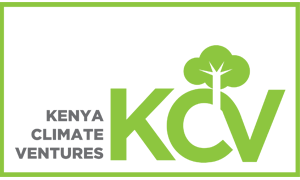In the heart of Bahari Constituency, Kilifi County, is Matsangoni Model Health Centre. “This is where the Moringa tree journey began,” notes the Chief Executive Officer of Kilifi Moringa Estates (KME) Papu Haroon. The health facility is home to 360 moringa trees.
The farm at the health centre has been a source of food for a group of 15 women living with HIV. In an attempt for social inclusion, the group manages the farm which was established in 2014. This is the most productive farm. In the last harvest season, 110 kilogrammes of mornings seeds were harvested. KME buys the seeds at KSh.250 per kilogramme.
With the seed funding of $500,000 from Kenya Climate Ventures (KCV), KME will increase its growing capacity by 100 acres to supplement the produce from the 500 out growers.
“This means that the community will be able to get more of the pruned branches for their consumption at the household level and more employment opportunities for the vulnerable groups that KME works with,” noted Haroon.
Just like any health facility, Matsangoni has various health related groups attached to the centre. Support groups for people living with Diabetes, HIV, Cancer, High Blood Pressure among others have continued to use moringa as their daily health drug.
“The mothers and children who visit the health centre have seen a lot of improvement in their health as a result of the moringa leaves,” confirms Ziro David, group leader and employee of KME.
Moringa has a number of unique health and nutritional benefits. At the Matsangoni health facility, moringa has been recognized as a maternal health nutritional booster for expectant mothers and children under five years. Kilifi Moringa Estates (KME) allows the women to prune the trees and use the leaves as a vegetable dish.
Moringa tops the chart of all other anti-oxidant super foods with the highest Oxidant Radicals Absorbent Capacity (ORAC) score. Locally known as mizungi, the leaves contain seven times the Vitamin C in oranges, four times the Vitamin A found in carrots, four times the calcium and twice the protein in milk and three times the potassium found in bananas.
The leaves or seeds can be consumed by chewing. The women who visit the health centre use the moringa sludge/mud as medication for ring worms for their children.
“I consume the Moringa leaves as food for the entire week due to lack of resources to buy other vegetables like spinach, kales, mchicha or manage. In addition to the ARVs that I receive, Moringa has become part of my daily routine and I feel more energised,” says Mariam.*
According to Maureen Achieng who is a clinical officer at the health centre and serves as the treasurer of the group, moringa has been proven to improve milk production for lactating mothers, boost the immunity of both mother and child, control the sugar levels for those living with diabetes, promotes digestion and relieves constipation.
“During their clinic visits, mothers are happy to report the myriad of benefits of making moringa part of their daily routine. Children who were earlier malnourished have improved greatly due to consumption of moringa which is rich in zinc and iron.”
Not far from the health facility is Madeteni Women’s Group comprised of 25 farmers; 3 of whom are men. This is one of the 12 groups that KME is working with where 85% of the work force are women.
The group which was established earlier in 2017 manages over 500 moringa trees planted in May this year. “Groups are easier to work with as they manage the farms well and have a sense of collective responsibility,” emphasizes Haroon.
KME trains the women on effective tree management, micro finance and group leadership.
“Some of the benefits of being a member of this group include sharing of ideas, working together, sharing the proceeds from the harvest, appreciating group effort and being able to educate our children form the sale of the leaves,” avers Esther, The Monitoring and Evaluation Officer at KME.
A quarter of the group consists of single headed headed households. On average, each household supports between 6-10 dependants. Some of the women would like to be engaged in other economic activities like chicken rearing to supplement their income.
“We are appealing for support to establish a poultry rearing business because of the variety of products such as eggs, meat and use the droppings as manure for our Moringa farms,” affirms Kadzo*. The group estimates the cost of putting up the structures and stocking up the chicken to approximately KSh. 200,000. In addition, The HIV group would like to get support in purchasing tents, chairs and catering dishes for hire during events in the neighborhood.
KME is making arrangements to have the farmer groups invited to the processing plant in order to motivate them to see the benefits of growing the Moringa tree and attract more growers.
*Names have been changed to protect the identity of those who spoke on anonymity.












